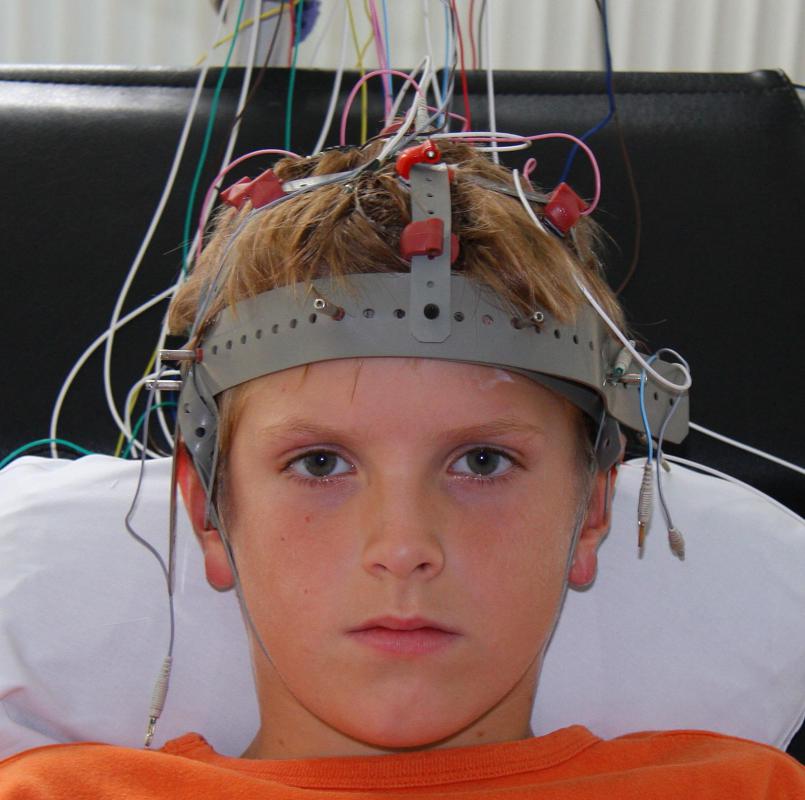

You should have less than three hours sleep on the night before your EEG, unless instructed otherwise. You should eat prior to the test and take medications as usual.
#WHAT IS A EEG TEST FREE#
Your hair should be clean (washed and dried before the test) and free from hair spray, gel etc. The results will be analysed after you leave and a report is then sent to your doctor, who will discuss the results with you. The technician may ask you to open and close your eyes at various times, breathe deeply for a few minutes and to look at a flashing light. The recording is performed by a technician, who will ask you about any symptoms you may have as well as the names of any medications you are taking.ĭuring most of the test you will relax in a comfortable position on a couch with your eyes closed. With the brain waves, the safest and most accurate way to “provoke” the brain is to be sleep deprived. If someone has chest pain then the doctor will place them on a treadmill and exercise their heart to see how it functions under load. The sleep deprived EEG test is a way of provoking the brain. You may have a routine awake EEG, or sometimes a sleep EEG. The electrical activity detected by the small metal discs is amplified by the EEG machine and recorded. Small metal discs and paste are placed on the surface of scalp by parting the hair. While the different types of EEG might seem a little strange at first, they will mean you get the best treatment possible in the end.An EEG (electroencephalogram) is a recording of the electrical activity of the brain, and may be useful to diagnose epilepsy, and other problems with the brain. Learning about your seizuresĮEGs help doctors diagnose your epilepsy, and are one of the many tools that can help them understand your seizures better. This makes it more likely that the EEG will record when you are actually having a seizure. In an ambulatory EEG, you wear a kind of EEG hat for a few hours or days at a time. This means the neuropsychologist can look at your brain’s electrical patterns when you are sleeping.Ī routine EEG might be too short to diagnose epilepsy. In a sleep-deprived EEG you will be asked to not sleep the night before the test so you are more likely to fall asleep during the day. The electrical activity in our brains is different when we are asleep or awake. You might be asked to breathe deeply, look at a flashing light or open and close your eyes. Sometimes, you might need to wear the device for longer with certain types of EEG (see below). How long does an EEG take?Īn EEG usually takes between 30 minutes and one hour.
#WHAT IS A EEG TEST HOW TO#
Your doctor will tell you how to prepare for the test before you go.
#WHAT IS A EEG TEST SKIN#
Clean your scalp (the skin on your head).When you have an EEG test you will visit a brain doctor called a neuropsychologist. Learn more: What happens in your brain during a seizure? What happens during an EEG? Seizure diaries - you can use Epsy to record when and where seizures happened.Videos or detailed accounts of your seizures.That does not mean you don’t have epilepsy, but your doctor will need more information to diagnose your seizures. This happens with about half of all people with epilepsy who have EEG tests. However, if you do not have any epileptic activity during the appointment, the test will come back as ‘normal’. It might also show you actually have a brain condition that is not epilepsyĪn EEG shows what electrical activity is happening in your brain at the time of the test.Your doctor is thinking of reducing or stopping your epilepsy medication.Your doctor wants to learn more about your type of epilepsy.

If the patterns are unusual, this might be a sign of epilepsy.ĮEG tests are mainly used for diagnosing epilepsy, but they might also be used when: Your brain is continually producing patterns of electrical activity and an EEG is able to record some of those signals. It is short for Electroencephalogram and it is one of the ways that doctors diagnose epilepsy. What is an EEG?Īn EEG is a recording of electrical activity in your brain.

Here is everything you need to know before you go. Your doctor might also have booked you in for a special type of EEG such as an ambulatory EEG or a sleep-deprived EEG. Has your doctor booked you in for an EEG appointment? This kind of test might look a little differentYou might be wondering how it will feel, what happens during an EEG and how long it will last.


 0 kommentar(er)
0 kommentar(er)
